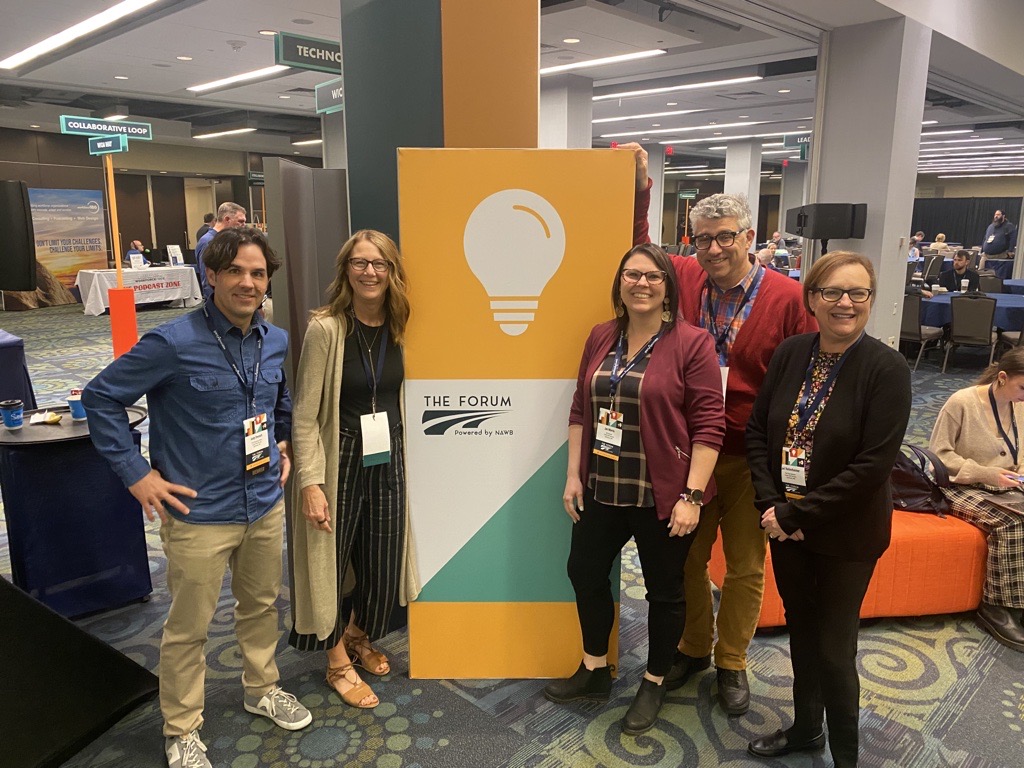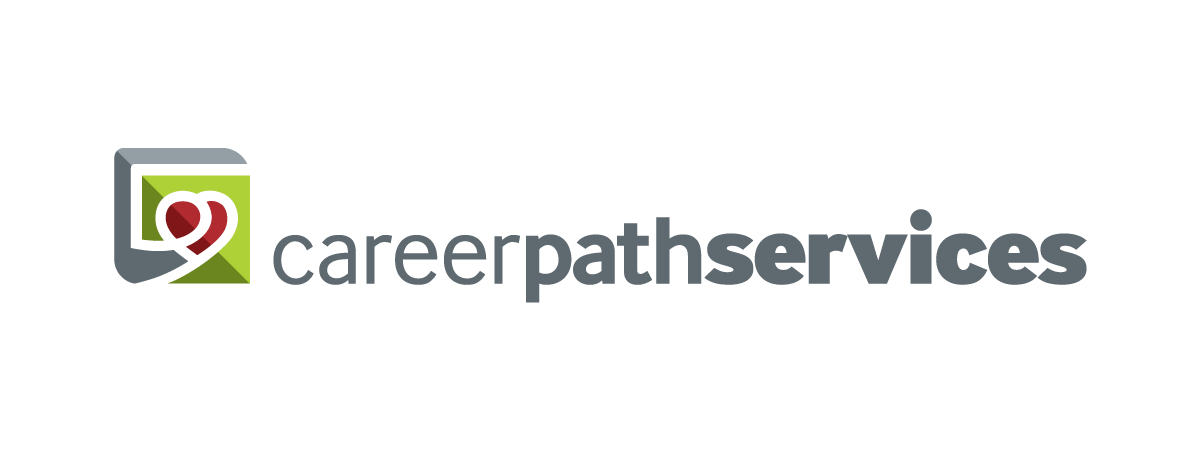News From NAWB Forum 2023

Some folks attended the NAWB Forum in Washington, DC, the last week in March. The Forum is the nation’s largest annual workforce development conference, a convening of Workforce leaders from around the country who come together to hear from industry leaders. Attendees come together to network, learn together, and equip themselves to meet the challenges of today’s dynamic landscape.
We asked our attendees to share a couple of their takeaways:
Lori Veitenheimer, One-Stop Operator Spokane
- The concept of how topics such as DEI can also be defined as “Belonging.” This basic concept of using the word “Belonging” may be our path to creating a safe space and productive dialogue specific to Diversity, Equity, and Inclusion. I read a statement: Equity is a choice, diversity is a fact, inclusion is an action, and belonging is the outcome. The content reviewed and shared aligned with our recent actions and conversations. This session described belonging as Experiencing security, support, and acceptance around the identities and group membership that are important to the individual. A sense of belonging can be a contributing factor to psychological safety, teamwork, and morale. My insight is specific to WorkSource and may be just what I’ve been searching for as a way to help everyone take one more step forward in their DEI journey!
- Digital equity and utilizing a digital equity asset map also spoke to me. It appears that 20% of our customer base doesn’t have access to the internet. And digital access is especially challenging for our underserved populations. As I think about the skills needed to secure employment, I can think of ways for us to improve in this area. I can see us adding digital literacy (dl) questions to our customer intake form and process. I see now more than ever that we need ESD to pursue their AmeriCorps Digital Navigator opportunity. I heard about the Digital Equity Act, something I intend to learn more about. Somehow, we must design digital literacy promotional materials in various languages at a level everyone can clearly understand. By collaborating with others, I think we can help ensure the people of Spokane have access to digital learning, training, equipment, and the internet!
Andy Dwonch, COO
It was a great conference. I always value the opportunity to step back from the day-to-day, to zoom out and look at / think and learn about what is happening in other parts of the country in the WFD space. A couple of key takeaways for me:
- I attended a workshop that highlighted the efforts of Prince George WDC (Maryland) to use technology to advance workforce system operations. Presentation Link HERE. I was impressed with the vision of the WDC to integrate together various technologies to create a robust virtual career center experience for customers, both job seekers and businesses alike. The core technology that they use to create this overall experience is a product called Workforce Compass (developed in partnership between Future Fit AI and NAWB). This platform which is now also being rolled out in Snohomish County, captures data on customers from the first touch point with the system, helps them identify opportunities and career pathways in local in-demand industries, and trainings and development resources to bridge any skill/readiness gaps. Ultimately it helps match jobseeking customers with employment partners and to track the outcomes of each from the beginning to the end of their engagement. Beyond the utility of this software platform and what it can do to help drive better outcomes, I was struck by the vision of how the primary owner of the customer in Prince George’s rested with the WDC, which then had greater control to shape the way the service providers in the system then would respond to needs of jobseekers and employers alike. It will be interesting to see if the adoption of WF Compass in Snohomish (and maybe other counties in WA?) may help to rebalance the power dynamics that exist between partners in our regional WorkSource systems.
- I was struck by the comments by EnGen CEO Katie Brown, Ph.D., on Monday’s lunchtime panel discussion about how English language limitations are the largest single obstacle for low-wage earners in the US to break the cycle of poverty. She made the audience imagine what it would be like to come in to work each day and not completely understand instructions or what it takes to be successful in their work. And if you don’t understand the language, you can’t fully integrate into organizational culture; you are likely to languish in low-wage work. Ms. Brown also highlighted the fact that a large % of the underemployed in our country are foreign-educated individuals whose credentials are not recognized by our system and our employers…Engen, her company, offers some answers to these challenges.
Alan Jacobson, One-Stop Operator Snohomish
- The concept of professionalism is white. Nonwhites end up having to code-switch to fit into a toxic micro-aggressive culture.
- Training must happen. Skills are everything! By 2030, Europe wants at least 60% of adults to retrain yearly! Greece has 7.6% unemployment, but ⅓ of employers there cannot find workers.
- The concepts of “soft” and “hard” skills are antiquated & vaguely insulting. So-called soft skills get you hired & fired; they’re now called durable or essential skills, while hard skills are now called “technical.”
- The traditional university model is becoming increasingly obsolete. Education, training, and vocational schools are what’s coming. One size does not fit all!
Jen Morris, Spokane Resource Center Director
I went to a session on Opioid treatment and the Workplace. The idea of having tough conversations with employers about how they have current employees that are using opioids and need help now, not when something happens. The session was more about how employers should put more into their current employee’s health rather than worrying about hiring someone who is clean at the moment of being hired. There are industries with a higher drug use rate than others (Hospitality and Construction are just 2 of the top). Project Opioid – FORTE is something they spoke about and suggested that staff look into the program.
Another session was on how we are storytelling. It was suggested that we try to think outside the normal success story video. One WDC does a bit called Wage World (a spoof on Waynes World) that is hilarious, engaging, and educational. They have them on YouTube for others to watch. When it comes to social media, you have 2.5 seconds to engage with someone. So, when using TikTok, for example, you only have 2.5 seconds to grab the attention of the person scrolling. One person said, “We are not selling work; we are selling supporting your family.”
Cami Eakins, CEO
There were so many great sessions and conversations, but I will limit myself to three takeaways:
- Projections for jobs in the Clean Energy sector over the next ten years. Jobs include electricians, line workers, engineering, technology, cyber security, and construction. Half of these jobs do not require a 4-year degree.
- Clean Energy – 5 million
- Clean Manufacturing – 900,000
- Clean transportation – 400,000
- Buildings – 900,000
- Department of Labor campaign; yes, WIOA aims to put Innovation back into WIOA. You can learn more at https://ywc.workforcegps.org/
- I attended a session by Cape Youth; they shared data from a report by the National Youth Employment Coalition (NEYC), Identifying Gaps In Youth Employment Program’s Capacity to Address Mental Health Needs. It was eye-opening on the impact of mental health, and youth-those of you serving youth can attest to it. It is time for us to normalize conversations around mental health and to connect young adults…..all adults.


Comments are closed.